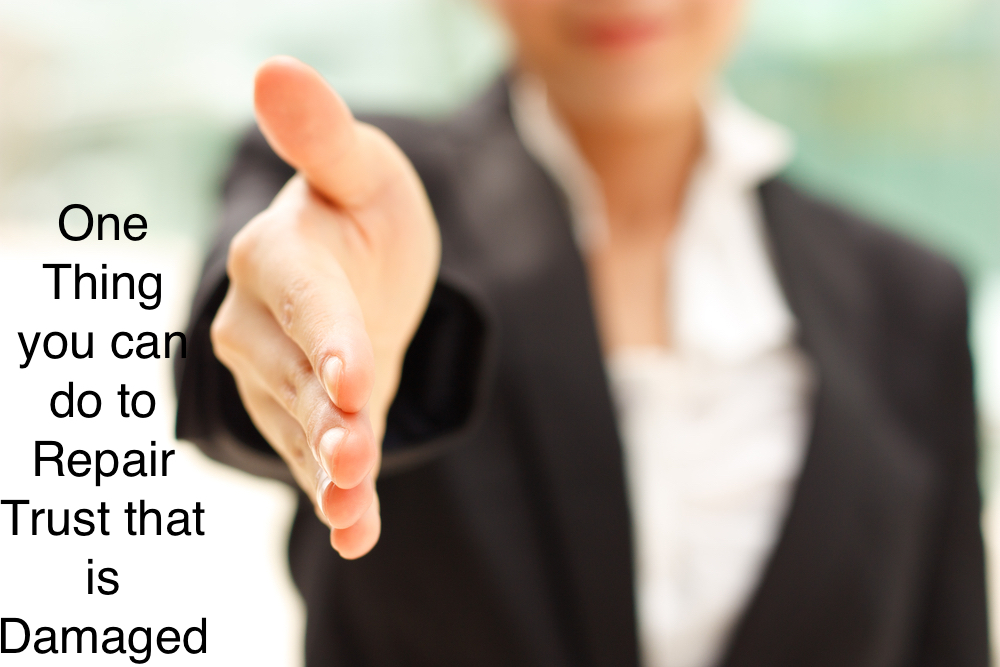Do you have a relationship where damaged trust is interfering with your ability to get things done? It can be difficult to repair trust, but there are a couple of things you can do to build back your confidence in one another. I’ll share one today and one in my next post.
If you have read my book You First you’ll know that if you want something on your team to improve, you are the very best person to do it. Otherwise, you could wait in vain while the relationship suffers and spirals beyond repair. So start with the assumption that you will need to trust first.
Do First, Believe Later
We all know that how we feel about something affects what we do about it (emotion leads to behavior). But I have talked before about the fact that the reverse is also true: We often infer how we feel about something by how we behave (behavior leads to emotion). You can use this to your advantage when restoring trust.
Homework
Think of one situation where you don’t trust a colleague and they don’t trust you. Now ask yourself what you would do in that situation if you did trust that person. Then take one small but meaningful action in that direction. Make sure to be explicit about what you’re doing so the other person recognizes it.
Examples:
If you trusted someone to advocate on your behalf, you might not attend a meeting that they were attending. “If you’re attending that meeting, I’m comfortable that you’ll represent me.”
If you trusted someone to make a good decision, you might ask only to be informed after it’s made. “I’m confident that you have what you need to make this decision. Let me know what you decide.”
If you trusted someone to give good advice, you might have them stand in for you while you’re out of the office. “I’d like you to be my delegate while I’m out of the office. I’m leaving you in control for the next 2 days.”
Voila!
That’s it. That’s all you need to do to make a first step to improve trust. Act as if you trust the person, even if you don’t. Acting as if you trust someone will set off two virtuous cycles.
- Behaving as if you trust the person will create dissonance in you (because of the incongruence between how you feel and what you’re doing). If you stick with the trusting behavior, the only way to reduce the dissonance will be to change how you feel about the person. (I am letting him make this decision without oversight, so therefore I must trust him.) That will improve the experience of the relationship from your side.
- Seeing evidence that you trust him will start to change how your colleague thinks about you. That will improve the experience of the relationship from his side.
- If both of you experience the relationship differently, it is already improved. Those improvements in perception lead to more trusting behavior and the downward spiral reverses direction.
Stick with It
If the trust in your relationship has really been damaged, you’ll probably need to stick with this plan for a while before your colleague gets past the “too good to be true” phase. But keep going. Unless your colleague has a personality disorder, she will feel the responsibility that comes with your trust and behave accordingly.
I agree that this approach is not without risk. It is possible that the person will abuse your trust. But think of it as a game of odds: if you do nothing to repair the trust, you can be fairly certain that things will deteriorate; if you take a risk and trust first, there is a chance that things will get better. And that’s a chance worth taking.

Like this! Thank you!